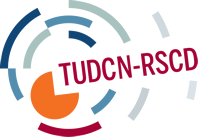
SDGs should be mainstreamed in all EU policies, in primis in the deepening of the single market, within the economic governance of the EU, and in the new Multiannual Financial Framework. The EU and Member States should be able to mobilise own resources to shelter people when correcting macroeconomic imbalances resulting from the adverse effects of economic crisis.
National plans submitted in line with the timetable of the European Semester have to pave the way for SDG implementation.
The ETUC will encourage and be committed to thematic and peer reviews to look at and learn from those that traditionally perform better. For that purpose, the ETUC will work together with the TUDCN to harmonise monitoring and reporting methods, agendas and timeframes, in the EU and worldwide. The monitoring and reporting process of the TUDCN will be integrated into and synergised with the ETUC Semester toolkit.
A trade union focus on the SDGs – Poland
With over 10 per cent of those in employment classified as working poor, Polish trade unions highlight that more needs to be done on wage-setting policies to progress towards the SDGs. Other obstacles hindering the country from advancing include state fiscal policies, and public services policies. Poland does not spend enough on social policy as a proportion of GDP. As such, trade unions are calling for increased expenditure, including raising the amount of social benefits and broadening the group of people entitled to them.
Download the full Polish case here
A trade union focus on the SDGs – Latvia
In terms of access to information on the SDG implementation process, the picture doesn’t look too bleak in Latvia. Trade unions report being able to provide their input and welcome the fact that part of their recommendations are being taken on board, but the process remains informal and too much on an ad hoc basis. Efforts need to be done to strengthen sectoral collective bargaining, to increase workers’ income, and to decrease the percentage of the population at risk of poverty.
Download the full Latvian case here
A trade union focus on the SDGs – Norway
Ranking top of the human development index in 2015, Norway comes from a strong starting point. However, trade unions note that the implementation process of the SDGs has not been quite as exemplary. In particular, they suggest that further efforts could be made to ensure better coherence among the different responsible ministries. In terms of ways forward, trade unions suggest that renewed efforts will need to be made with regard to implementing a just transition.
Download the full Norwegian case here
A trade union focus on the SDGs – Spain
Spanish trade unions highlight some delays to the integration of the SDGs into national policies by the previous government. A work plan on the issue has yet to be finalised and consultation remains at hoc. Meanwhile, indicators highlight the need for improvement, particularly on gender equality and income inequality. Better provisions for consultation, allowing actors to be informed on the status of implementation of the SDGs and provide input on how to improve performance on individual targets are needed.
Download the full Spanish case here
A trade union focus on the SDGs – Finland
Trade unions in Finland report a mixed picture on progress towards the SDGs. However, income inequality is on the rise and collective bargaining coverage is falling, meaning that societal strains are increasingly being borne by the most vulnerable. Trade unions stress the need to reverse these trends. Transparency and consultation have been positive points, the application of social dialogue, less so. Among the recommendations, trade unions suggest reinforcing the attribution of financial allocations for the implementation of the 2030 Agenda.
Download the full Finnish case here
A trade union focus on the SDGs – Belgium
While some progress is visible in Belgium, certain issues regarding the implementation process remain to be addressed. Platforms for civil society engagement exist although questions as to their commitment to truly open consultation remain unaddressed. Trade unions also call for a greater commitment to a just transition which does not leave workers behind.
Download the full Belgian case here
A trade union focus on the SDGs – Italy
The Italian government’s engagement on the SDGs is not always straightforward, nor is it planned in a holistic way. This is particularly true when it comes to the integration of labour rights policies. Trade union analysis reveals that, if the SDGs are to be achieved in Italy, a greater commitment is needed and that more coordination is required at the implementation level in particular.
Download the full Italian case here
A trade union focus on the SDGs – Sweden
While Sweden is only entering the implementation phase, the planning phase has been thorough, open and transparent. Trade unions highlight some issues that need to be addressed, most notably persisting gender inequalities and rising economic inequality. The government’s flagship Global Deal initiative as well as its focus on gender issues and climate action result in a foreign policy that is directly aligned with the 2030 Agenda.
Download the full Italian case here
